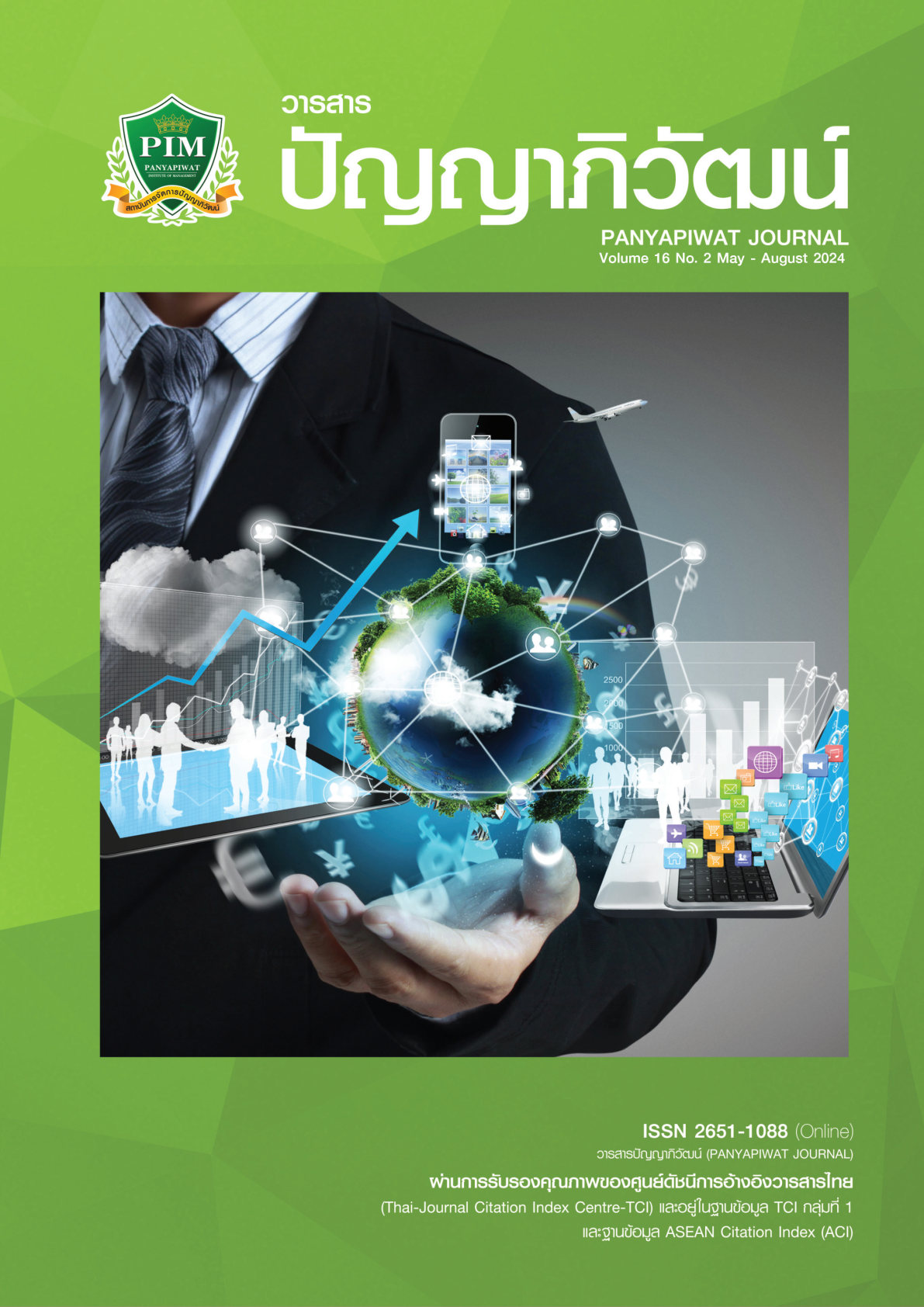การถอดบทเรียนการบริหารจัดการโรงแรมเพื่อส่งเสริมการท่องเที่ยวเชิงสุขภาพตามมาตรฐานความปลอดภัยและสุขอนามัยระดับสากล
Main Article Content
บทคัดย่อ
การวิจัยครั้งนี้มีวัตถุประสงค์เพื่อถอดบทเรียนการบริหารจัดการโรงแรมส่งเสริมการท่องเที่ยวเชิงสุขภาพเพื่อให้ได้การรับรองมาตรฐานความปลอดภัยและสุขอนามัยระดับสากล กรณีศึกษาโรงแรมอ่าวนาง ปรินซ์วิลล์ จังหวัดกระบี่ กลุ่มตัวอย่างประกอบด้วย ผู้บริหารโรงแรม บุคลากรระดับหัวหน้าฝ่าย บุคลากรของโรงแรม ผู้ปฏิบัติงานด้านสปา ฝ่ายอาหารและเครื่องดื่ม และฝ่ายจัดซื้อ จำนวน 10 ราย เก็บข้อมูลโดยการสัมภาษณ์เชิงลึกและการสนทนากลุ่มโดยใช้แบบสัมภาษณ์การบริหารจัดการโรงแรมตามมาตรฐานสากล GBAC STAR และการพัฒนาโรงแรมให้ได้มาตรฐาน และนำ มาวิเคราะห์ข้อมูลด้วยการวิเคราะห์เนื้อหา
ผลการวิจัยพบว่า โรงแรมที่เป็นกรณีศึกษามีการบริหารจัดการในการขอรับการรับรองจาก GBAC STAR เป็น 2 ระยะ ได้แก่ 1) ระยะเตรียมการก่อนการได้รับการรับรอง ประกอบด้วย 3 ขั้นตอน คือ ขั้นตอนเตรียมการบริหารจัดการ ขั้นตอนเตรียมเอกสารเพื่อขอการรับรอง และขั้นตอนเข้าสู่กระบวนการรับรอง 2) ระยะการดำ เนินการภายหลังการได้รับการรับรองจาก GBAC STAR การบริหารจัดการที่ช่วยให้โรงแรมสามารถขับเคลื่อนและพัฒนากิจกรรมบริการเพื่อบรรลุเป้าประสงค์ ประกอบด้วย 5 ขั้นตอน ได้แก่ การวางแผน การจัดองค์กร การบริหารบุคคล การนำองค์กร และการควบคุม
กระบวนการบริหารจัดการของโรงแรมดังกล่าว สามารถนำ ไปขยายผลให้โรงแรมอื่นใช้เป็นแนวทางในการดำ เนินการเพื่อให้ได้รับการรับรองมาตรฐาน GBAC STAR ต่อไป
Article Details

อนุญาตภายใต้เงื่อนไข Creative Commons Attribution-NonCommercial-NoDerivatives 4.0 International License.
“ข้าพเจ้าและผู้เขียนร่วม (ถ้ามี) ขอรับรองว่า บทความที่เสนอมานี้ยังไม่เคยได้รับการตีพิมพ์และไม่ได้อยู่ระหว่างกระบวนการพิจารณาลงตีพิมพ์ในวารสารหรือแหล่งเผยแพร่อื่นใด ข้าพเจ้าและผู้เขียนร่วมยอมรับหลักเกณฑ์การพิจารณาต้นฉบับ ทั้งยินยอมให้กองบรรณาธิการมีสิทธิ์พิจารณาและตรวจแก้ต้นฉบับได้ตามที่เห็นสมควร พร้อมนี้ขอมอบลิขสิทธิ์บทความที่ได้รับการตีพิมพ์ให้แก่สถาบันการจัดการปัญญาภิวัฒน์หากมีการฟ้องร้องเรื่องการละเมิดลิขสิทธิ์เกี่ยวกับภาพ กราฟ ข้อความส่วนใดส่วนหนึ่งและ/หรือข้อคิดเห็นที่ปรากฏในบทความข้าพเจ้าและผู้เขียนร่วมยินยอมรับผิดชอบแต่เพียงฝ่ายเดียว”
เอกสารอ้างอิง
Chulalongkorn University Intellectual Property Institute. (2017). Intellectual property innovation driven enterprise retrieve. https://www.ipthailand.go.th/images/3534/web_01052018/Report_CHU/8_Well-being_06.12.2017_CHU.pdf
GBAC STAR Facility Accreditation a Division of ISSA. (2022). GBAC STAR facility accreditation https://gbac.issa.com/gbac-star-facility-accreditation/
Jaiwilai, W., & Sukphet, K. (2023). Factors related to the Thai aging travelers’ behavior in selecting wellness tourism services during the COVID-19 pandemic. Panyapiwat Journal, 15(1), 158-176. [in Thai]
Katawandee, P, & Kittikovit, S. (2005). Wellness tourism: Development strategies for hotel business. http://tourismlibrary.tat.or.th/medias/CU0252/CU0252_fulltext.pdf [in Thai]
Knootz, H. D. (1972). Principle of management: Analysis of managorial functions. MeGraw Hill Book.
Le, D., & Phi, G. (2021). Strategic responses of the hotel sector to COVID-19: Toward a refined pandemic crisis management framework. International Journal of Hospitality Management, 94, 102808. https://doi.org/10.1016/j.ijhm.2020.102808
Limarunothai, W., Pipawarokorn, A., & Chiravongvit, V. (2023). The enhance to wellness tourism: The adaptive on hotel business after COVID-19 crisis in Thailand. In The 14th NPRU National Academic Conference Nakhon Pathom Rajabhat University (pp. 2522-2534). Nakhon Pathom Rajabhat University. https://publication.npru.ac.th/jspui/handle/123456789/1820
SEA Consulting. (2022). GBAC STAR. https://seaconsulting.asia/gbac-star/
Sucharitkul, J. (2019). Transformational leadership among administrators of the local government administration in Thailand 4.0 era: A case study of Phuket Local Government Administration. Journal of MCU Nakhondhat, 6(10), 4930-4943.
https://so03.tci-thaijo.org/index.php/JMND/article/download/215639/162262/805428 [in Thai]
Tadasirichoke, P. (2020). Adaptive strategy of hotel management during Coronavirus (COVID-19) pandemic situation: A case study of the Patra Hotel-Rama 9 [Master’s thesis]. Silpakorn University.
The Future of Wellness. (2021). Global wellness summit. https://www.globalwellnesssummit.com/trends-2021/


